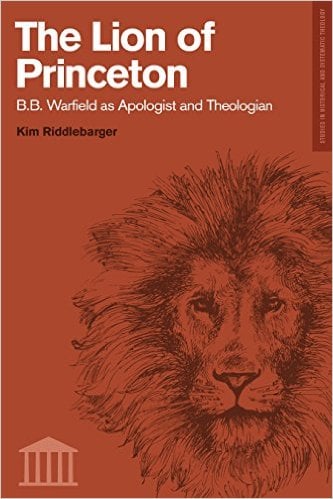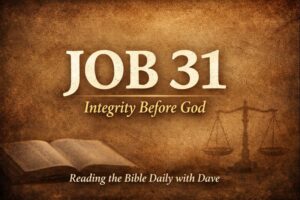⏱️ Estimated Reading Time: 4 min read
America, unfortunately, is not known on a historical level for its long line of theologians with positive worldwide influence. Especially within the scope of Reformed theology, we often look to Germany, England, the Netherlands, Scotland, for consultation on theological matters. While a few prominent American theologians are scattered over our 300-year history, one particular theologian, born in the Bluegrass State of Kentucky, would go on to become one of the most important professors and Christian thinkers and apologists America will ever claim.
Benjamin Breckenridge Warfield was as fierce as his name indicates. Naturally, The Lion of Princeton is a perfect nickname for Warfield and the perfect title for a biography devoted to his life and teaching. Kim Riddlebarger, a distinguished pastor, and professor has been tasked to write a systematic treatment of Warfield’s theology. After spending the first couple of chapters setting the stage for Warfield, Riddlebarger delves into the topics of New Testament Studies, Apologetics, Systematic Theology, Didactics and Polemics, and a final chapter on various contemporary critics of Warfield’s methods. Though only a few chapters, there are nearly 300 pages of material to be analyzed here, so needless to say, this is not a surface-level look into the life of Warfield, but a deep and extensive look into a few places. A common thread found throughout the book is Riddlebarger’s emphasis on Warfield’s apologetic methods, and how his use of evidential apologetics permeated throughout his thought and teaching.
It is precisely this explanation of Warfield’s evidentialism that was one of the most interesting components of the book to me. I knew Warfield was of a different persuasion than presuppositionalists like Cornelius Van Til, but prior to this book I had not spent much time seeing the good behind Warfield’s apologetic methods. Most presuppositionalists have no need for men like Warfield; they think his methods are rubbish. But I think we have much to learn from B.B. Warfield in how he defended the faith, even if we don’t agree with all of his starting points or methods. As Warfield asserts, “Christianity must think through and organize its, not defense merely, but assault.” (85) That was the heart of Warfield. Like his very name indicates, B.B. Warfield knew a battle was at hand, and that swords are just as, if not more necessary than shields.
This book expounds on the structure of Scottish Common Sense Realism, a key component of how Warfield did his reasoning. No matter if you agree with his approach to apologetics, one thing is clear, that Riddlebarger continues to hammer home — Warfield was a man of truth. He was thoroughly orthodox, as O.T. Allis’ incredible anecdote on page 195 explains. Riddlebarger argues, in light of this, that “those who attempt to label Warfield’s apologetic as inherently Arminian, Thomistic, or…Romanism, are simply engaging in ad hominem argumentation.” (253) In other words, these arguments are unfortunately merely against the man, not the message. We have much to learn from Warfield in how he does apologetics, even if his methods feel and look a little different than what we may be used to.
The book has a couple of weaknesses. The outline of the book was very short, I think the chapters often overlapped with each other. Because of how Warfield naturally operated, everything was tied together in apologetics; thus, a separate chapter on apologetics doesn’t really work. Because of this, it felt a little jumbled to me reading it at times, as a book. Also, I really wish there were a subject index or something to help readers better find pages on certain subjects, considering the length of this volume. The content itself, however, makes up for these small concerns.
Riddlebarger has done a wonderful job of introducing Warfield the thinker to the reader, creating a thirst in the reader to drink in more of his works (I got Warfield’s 10-volume works while reading this!). You will not waste your time in reading this book, especially if you want a good glimpse into the powerful teaching of one of America’s finest theologians.
I received a copy of this book from Lexham Press in exchange for my honest review.




